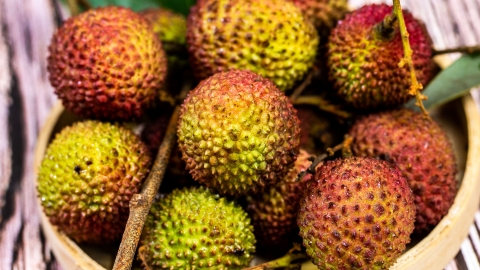Can patients with liver cancer eat lychee?
Patients with liver cancer who have good liver function and stable blood sugar levels may consume lychee in moderation. However, those with severely impaired liver function, abnormal blood sugar levels, or those in the progressive stage of the disease should avoid eating lychee. If in doubt, it is recommended to consult a doctor in advance. Detailed explanations are as follows:

For liver cancer patients with well-compensated liver function, no significant ascites or jaundice, and normal blood sugar levels, moderate consumption of lychee can help supplement nutrition. Lychee contains vitamin C, glucose, and various trace elements that can enhance immunity. Small amounts of intake will not significantly increase the liver's metabolic burden and can also provide energy for daily activities.
For liver cancer patients in the decompensated stage of liver function, especially those with hepatic encephalopathy or significant ascites, the liver's ability to metabolize sugar is significantly reduced. The high sugar content in lychee increases the risk of metabolic disturbances. Patients with concurrent diabetes who consume lychee may experience drastic fluctuations in blood sugar levels. Patients with poor gastrointestinal function and weak digestion and absorption may experience discomfort such as bloating and nausea after consuming lychee. Additionally, for patients in the progressive stage of the disease with fragile liver function, excessive consumption of lychee can increase the liver's workload and hinder recovery.
For liver cancer patients consuming lychee, those with normal liver function should not eat more than six lychees at one time and should avoid eating them on an empty stomach. If the patient is in a severe stage of illness, has abnormal blood sugar levels, or experiences gastrointestinal discomfort, they should stop consumption immediately and follow medical advice to adjust their diet plan.









